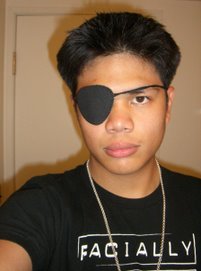 The Unknown
The UnknownAs we know,
There are known knowns.
There are things we know we know.
We also know
There are known unknowns.
That is to say
We know there are some things
We do not know.
But there are also unknown unknowns,
The ones we don't know
We don't know.
—Donald Rumsfeld at Department of Defense news briefing Feb. 12, 2002, available at http://www.slate.com/id/2081042
There are known knowns.
There are things we know we know.
We also know
There are known unknowns.
That is to say
We know there are some things
We do not know.
But there are also unknown unknowns,
The ones we don't know
We don't know.
—Donald Rumsfeld at Department of Defense news briefing Feb. 12, 2002, available at http://www.slate.com/id/2081042
Donald Rumsfeld left out a very-often unmentioned type of known here: the unknown known, the things we don't know that we know. This is a fundamental flaw in a world where we are overloaded with communication, particularly with the advent of the Internet. It is not that we are missing the fundamental facts; it is that we are not looking at the big picture and putting the pieces of the puzzle together!
Don't lose too much hope, though. We don't know how to make the pieces fit because we don't know what the solution is or what the big picture should look like, though we like to hypothesize.
Take the American surprise at the global rise of China over the past 20 years: unless you were actively questioning the way the American media categorized China as pinko commies with a complete disregard for individual freedom, you would never guess they would suddenly grow into a big player on the world stage. All the information was there, but not all of it was presented to Americans.
Now, if you were a Sinophile, you would surf the Net for all things China-related, and you would be a fool to limit yourself to American news sources (especially if you limited yourself to English language sources as well).
One way to explain the phenomenon of why many were surprised was that the news media was portraying a different picture and limited our potential for understanding and making our own conclusions, due to foreign policy and cultural biases. If you're not angry about being lied to, maybe you should be: the majority of the American news media today tends to strongly emphasize conflicts of development and corrupt government officials and synthesizing it with Asia's economic "miracle" in an attempt to show what the price of progress is in the region.
But you should also probably be a little more sympathetic towards Americans and their media instead of outraged, considering:
1) the United States is a big country with so much going on that people tend to only care about what goes on in their community, and if anything more, what their State and Federal government affairs mean to them;
2) the information is there, but that doesn't mean they'll read it or access it;
3) alternatively, they may not even have the means to access all the information, such as the non-tech-savvy and those who can't read (illiteracy is still common); and
4) how much does a West Virginia coal miner care about the new independence of East Timor, let alone why should he care when it may have no effect on his life whatsoever?
Now to totally throw that one around by reiterating the earlier statement of the unknown known: there are things we don't know that we know, and it can and will hurt us because we don't prepare for it. Biggest example: all the information for 9/11 led up to it, but it was virtually ignored because it was categorized as low-priority by the higher echelons of national security, and through that perspective, we didn't expect to be attacked, yet we knew we were going to be attacked. To hit a little harder, the Detroit automobile manufacturing industry didn't know how bad Japan's rise would affect them and destroy their industry.
Fact of the matter is, we should care about Asia. We should learn Mandarin Chinese and Japanese (and potentially Korean soon) for business and political reasons (and because your boss may just speak one of those as his or her mother tongue), plus because it gives us access to information that is not limited by our English. We know that it's important because we don't know what can happen, and though we do know that the less we know, the stupider we feel when someone tells us that the Philippines is in Asia, not Latin America.





